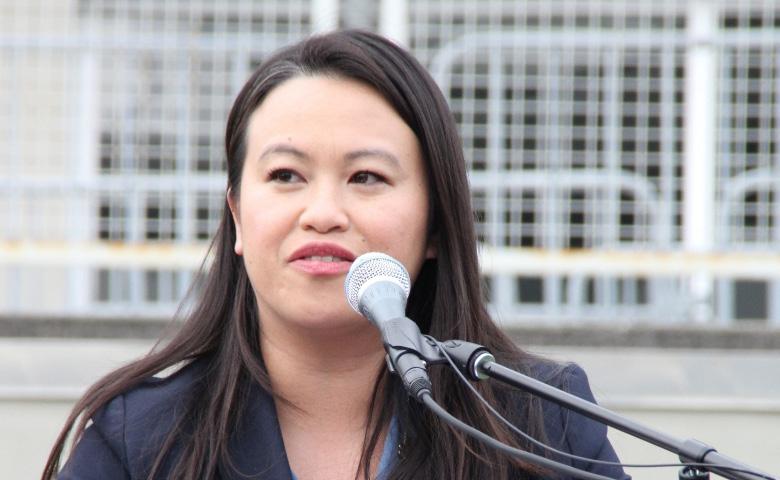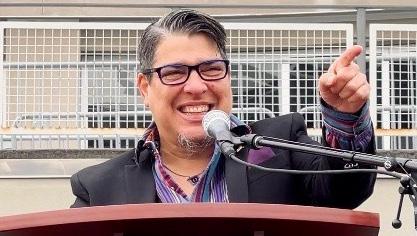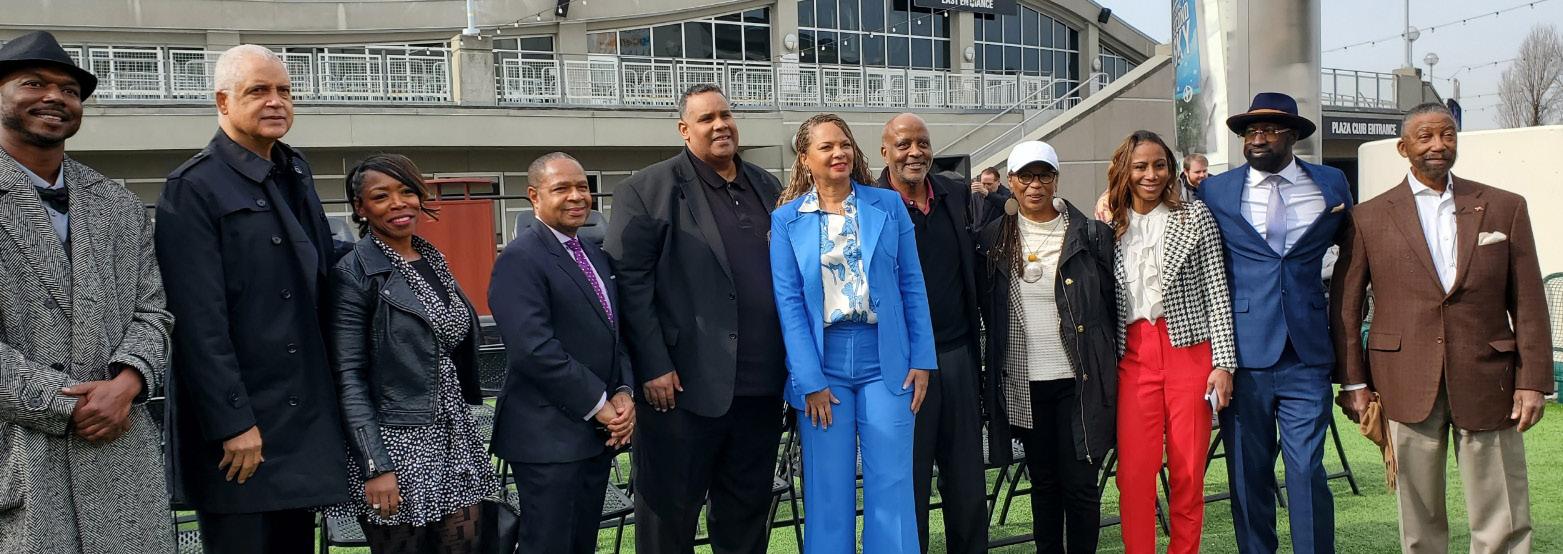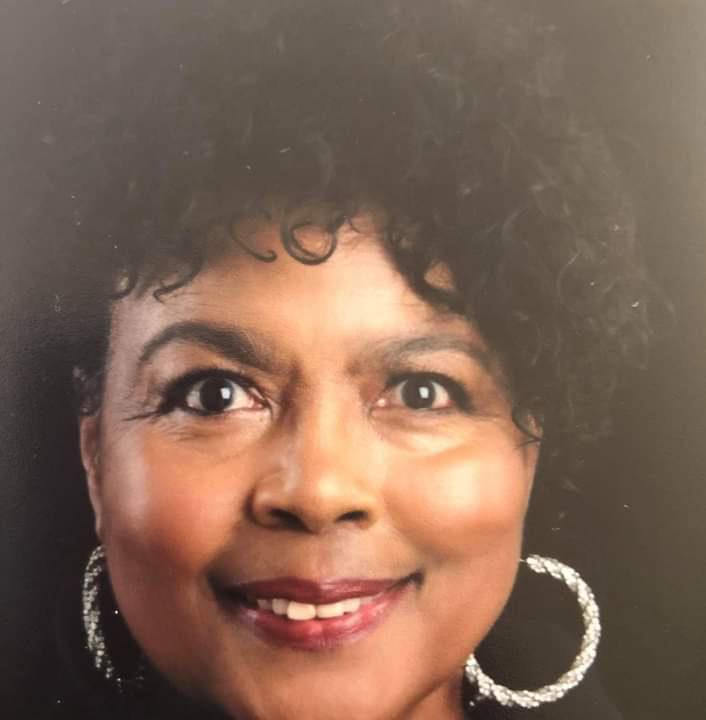
5 minute read
Thelma Mae Simmons, 1942-2023
Corporate Executive, Mother, Grandmother and Friend to Many
Historic Oakland Coliseum Development Moves Ahead with African American Sports and Entertainment Group
This project will be the largest transfer of public land to African Americans in Oakland’s 171-year history
By Carla Thomas and Ken Epstein
Holding a celebratory and historic press conference Thursday, city leaders joined the African American Sports and Entertainment Group (AASEG) to announce an Exclusive Negotiating Agreement (ENA) with the City of Oakland to develop the city’s 50% interest in the Coliseum complex, making this the largest transfer of public land to African Americans in Oakland’s 171-year history.
Attending the media event at the Oakland Coliseum were Mayor Sheng Thao, Councilmember Rebecca Kaplan (who authored the resolutions allowing the deal to move forward) and several Oakland elected officials and community, business owners and faith leaders as well as AASEG founder Ray Bobbitt, who hosted the event.

“Awarding the development agreement of this vital site to an Oakland-based African American-led business entity will go far in addressing glaring racial disparities within the City of Oakland’s contracting practices,” said Bobbitt a press statement.
Bobbitt said the project will mean real development that will benefit the people of Oakland. “This project will foster economic parity, entrepreneurial and local small business opportunities,” he said.
Bobbitt also explained that AASEG reached out to 50 community organizations prior to presenting his proposal to the city. “Being from Oakland, our group knew that in order for this to work we had to ensure we heard from people who live here to give us the proper direction. That was my main goal.”
Praising AASEG, Mayor Sheng Thao said, “We are talking about an organization that is leading Black-owned businesses partnering with Black-owned investment firms, working to bring housing and Black-owned businesses to our town, creating jobs in East Oakland and is the largest development opportunity for an African American-led group in Oakland’s history.” know about the 2021 NCAA season. Your source for s Thao said the agreement with AASEG would potentially bring new public facilities, retail to an underserved area of the city, hospitality opportunities, affordable housing, and new sports teams to the city, as well as between 20,000 and 30,000 new, high-paying jobs to the city.
AASEG is an African American founded, Oakland-based group focused on creating economic opportunity in East Oakland and using the Coliseum Complex as a vehicle for economic equity and social justice.
Their proposal includes bringing a WNBA team to the City of Oakland, which aligns with the city’s values to uphold and support women and to allow fans to root for a sport primarily led by Black women. The group has received strong support from the Oakland community, Oakland City Council, and Oakland-Alameda County Coliseum Authority.
Said Kaplan, who introduced the Oakland City Council and the Coliseum Authority resolutions allowing for the ENA with AASEG, “I am thrilled that we have the opportunity to bring jobs, housing at all income levels, sports, entertainment and more to this vital Oakland site, in a way that strengthens equity and vibrancy for the community at this transit-accessible location.”
For several years, Kaplan has advocated for community-oriented revitalization of the Coliseum site as a remedy for long-term concerns over the loss of jobs, lack of affordable housing, and the further erosion of the Black community in
East Oakland.
Kaplan considers the Oakland Coliseum property to be an excellent large site that has connectivity throughout the region, including with BART, Amtrak, freeway, and airport access. Developing the site in a way that provides jobs, housing at all income levels, and public revenue can achieve significant opportunities for the Oakland community, especially in the East Oakland area where it is located.
District 4 Bart Director Robert Raburn said he has supported developer Alan Dones and AASEG throughout multiple meetings.
Citing the location as a transit hub with BART, the airport, and the freeway, Rayburn said, “We have to pull this off for…the people of East Oakland.”
Councilmember Noel Gallo said, “This agreement gives AASEG two years to propose and negotiate with the City Council and the Oakland A’s about what will happen on this land.”

Sports leader agent Bill Duffy, former Rufus Williams of Loop Capital, former Oakland City Manager Robert Bobb, City Councilmembers Treva Reid, and Kevin Jenkins were also on hand for the historic announcement. “This is an exciting time for Oakland,” said Dones.
AASEG was founded in 2020 with the goal of using the vehicle of sports and entertainment to create a path for enhanced economic equity for the Black community.
The group’s most well-publicized proposal is the establishment of the first majority Black-owned NFL team in Oakland, California, along with plans to bring WNBA and NWSL teams to a thriving sports, entertainment, educational, and commercial district in East Oakland at the Coliseum site.

By Tammerlin Drummond
Thelma Mae Simmons was born in 1942 in Bastrop, Louisiana. When she was four, her parents headed west to Seattle where Thelma grew up in a diverse neighborhood. It was an unusual experience for an African American in the 1950s and would shape Thelma’s worldview.
“My mother believed that everyone came from the same tribe, that you never met a stranger,” said Thelma’s son, Eric Cross. “She taught us to accept people with love and not judgment.”
Thelma, who had lived in Oakland since 1985, died Jan. 24, 2023. She was 80.
Thelma was a pioneer who helped shatter the glass ceiling for Black women in corporate America. She was a globetrotter who visited every continent except Antarctica. But Thelma will best be remembered as a devoted mother, grandmother, great-grandmother and friend.
She grew up in Seattle, graduating from Garfield High School. She got her bachelor’s degree from Western Washington University.
In 1960, Thelma was hired as a switchboard operator at Western Pacific Bell in Seattle. She rose through the ranks to become a human resources manager. At the time, Black women made up just 2% of managers at U.S. companies.
When Thelma traveled to satellite offices, white colleagues often assumed her white male subordinate was her boss. She handled it with her characteristic grace and humor.

In 1989, Thelma was featured in an Ebony magazine article, “She’s the Boss.”
After a 36-year career, Thelma retired as a regional human resources manager at AT&T in San Francisco. She became a human resources consultant and served as a professional witness in employment discrimination cases.
The greatest testament to Thelma’s life, however, is the many people in the Bay Area and beyond, who now mourn her passing.
“Thelma was a true friend,” said longtime friend Sandra Smith, “for those close to her, she was always there when they needed her.”
When Thelma’s friend Faith Fancher, a former reporter at KTVU, Channel 2 in Oakland, was diagnosed with breast cancer, Thelma took her to medical appointments and remained a steadfast source of support until Fancher passed away nearly six years later.
Thelma was a founding member of Friends of Faith, a former nonprofit that provided financial support to low-income women battling breast cancer.
She was a lifetime member of the NAACP. She also served on the board of the Oakland Private Industry Council and was a member of Delta Sigma Theta Sorority.

Thelma was a voracious reader, which made her a master at Jeopardy!
She loved football and basketball, collected art and was an excellent cook.
Friends fondly remember Thelma’s competitive streak.
“When she was winning in dominoes she would talk a whole lot of mess, but when she was losing, she would get real quiet,” said another longtime friend Levi Fisher.
Years ago, Thelma gifted Fisher a set of dominoes inscribed with his name. After her death, he took them out for a game, reflecting on their long friendship. “I just loved her so much,” Fisher said.
Thelma was preceded in death by her parents Charlie and Leona Cross and brother Charles Cross, Jr.
She is survived by sons, R. Stevonne Cross, and Eric Lamont Cross, daughter-in-law Diane Cross, longtime friend Barry Washington, five grandchildren, and 17 great-grandchildren.
There will be a Celebration of Life Memorial Service on Feb. 4 at 1 p.m. at Chapel of the Chimes, 4499 Piedmont Avenue in Oakland.






